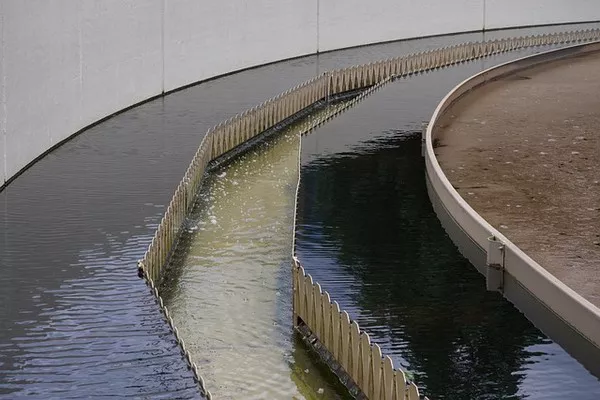Sewage treatment is a critical component of modern urban infrastructure that often goes unnoticed, yet its importance cannot be overstated. It plays a pivotal role in safeguarding the environment and public health. In this article, we will delve into the various aspects of sewage treatment, highlighting why it is essential for society. From pollution control to disease prevention, sewage treatment is a linchpin of sustainable development and a cleaner, healthier future.
Pollution Mitigation
Sewage treatment serves as a crucial barrier against water pollution. Wastewater, when left untreated, can contain a multitude of contaminants, including pathogens, heavy metals, pharmaceuticals, and toxic chemicals. Without proper treatment, these pollutants can make their way into our rivers, lakes, and oceans, wreaking havoc on aquatic ecosystems and potentially endangering the health of humans and wildlife.
One of the primary goals of sewage treatment is to remove or reduce the concentration of these contaminants to safe levels before releasing the treated water back into the environment. This helps maintain the quality of natural water bodies and ensures that they remain a valuable resource for both recreational and ecological purposes.
Protection of Ecosystems
Aquatic ecosystems are highly sensitive to changes in water quality. When untreated sewage is discharged into water bodies, it can lead to an overgrowth of harmful algae, known as eutrophication. This excessive growth consumes oxygen, creating dead zones where aquatic life cannot survive. Sewage treatment helps prevent eutrophication by removing excess nutrients like nitrogen and phosphorus from wastewater, preserving the balance of aquatic ecosystems and protecting biodiversity.
Additionally, untreated sewage can introduce foreign pathogens into natural water bodies, posing a risk to aquatic organisms. By treating sewage, these pathogens are removed or inactivated, reducing the potential for disease outbreaks among aquatic species.
Public Health Benefits
One of the most immediate and tangible benefits of sewage treatment is the protection of public health. Untreated sewage can carry a wide range of disease-causing microorganisms, including bacteria, viruses, and parasites. When released into the environment, these pathogens can contaminate drinking water sources, recreational areas, and shellfish harvesting grounds, posing a significant health risk to communities.
Sewage treatment facilities employ various processes, including disinfection, to eliminate or greatly reduce the concentration of these harmful microorganisms. This ensures that the water discharged into the environment is safe for recreational activities and minimizes the risk of waterborne diseases.
Resource Recovery
Beyond pollution control and public health protection, sewage treatment also presents an opportunity for resource recovery. Wastewater contains valuable resources that can be reclaimed and repurposed, contributing to sustainability efforts and reducing the environmental footprint of sewage treatment.
For example, sewage sludge, a byproduct of the treatment process, can be converted into biogas through anaerobic digestion. This biogas can be used as a renewable energy source, reducing the need for fossil fuels and mitigating greenhouse gas emissions. Additionally, treated wastewater can be reclaimed for non-potable uses such as irrigation, industrial processes, and toilet flushing, conserving freshwater resources and reducing the strain on municipal water supplies.
Sustainable Development
Sewage treatment is intrinsically linked to the concept of sustainable development. Sustainable development seeks to meet the needs of the present without compromising the ability of future generations to meet their own needs. Sewage treatment aligns with this principle by safeguarding the environment, protecting public health, and promoting responsible resource management.
By investing in modern sewage treatment infrastructure, communities can ensure that they are not only meeting their current sanitation needs but also laying the groundwork for a cleaner and more sustainable future. This infrastructure is an essential component of urban planning, enabling cities to grow and thrive while minimizing their environmental impact.
Regulatory Compliance
In many countries, stringent regulations govern the treatment and discharge of sewage and wastewater. Compliance with these regulations is not only a legal requirement but also an ethical responsibility. Sewage treatment facilities must adhere to established standards to protect the environment and public health.
Failure to comply with sewage treatment regulations can result in fines, legal action, and damage to a community’s reputation. Therefore, investing in and maintaining effective sewage treatment infrastructure is not only a matter of environmental and health stewardship but also a practical necessity for avoiding legal and financial consequences.
Climate Change Mitigation
Climate change is one of the most pressing global challenges of our time. Sewage treatment can play a role in mitigating climate change by reducing greenhouse gas emissions and adapting to changing environmental conditions.
As mentioned earlier, sewage treatment plants can capture and utilize biogas generated during the treatment process, reducing the release of methane, a potent greenhouse gas, into the atmosphere. Moreover, modern sewage treatment facilities can be designed to withstand the impacts of climate change, such as increased flooding and storm events, ensuring their continued operation and resilience in the face of environmental challenges.
Conclusion
Sewage treatment is a cornerstone of modern civilization, protecting the environment, public health, and our quality of life. Its importance cannot be overstated, as it mitigates pollution, safeguards ecosystems, prevents disease outbreaks, and promotes sustainable development. Moreover, sewage treatment facilities offer opportunities for resource recovery and climate change mitigation.
As we move forward into an increasingly urbanized world facing environmental challenges, investing in robust sewage treatment infrastructure is not just a necessity but an investment in our future well-being. By recognizing the vital role of sewage treatment and supporting its continued development and improvement, we can ensure a cleaner, healthier, and more sustainable world for generations to come.

